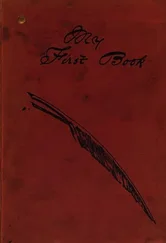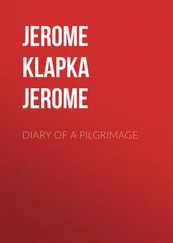We sleek, well-fed folk can hardly realize what feeling hungry is like. We know what it is to have no appetite and not to care for the dainty victuals placed before us, but we do not understand what it means to sicken for food—to die for bread while others waste it—to gaze with famished eyes upon coarse fare steaming behind dingy windows, longing for a pen'orth of pea pudding and not having the penny to buy it—to feel that a crust would be delicious and that a bone would be a banquet.
Hunger is a luxury to us, a piquant, flavor-giving sauce. It is well worth while to get hungry and thirsty merely to discover how much gratification can be obtained from eating and drinking. If you wish to thoroughly enjoy your dinner, take a thirty-mile country walk after breakfast and don't touch anything till you get back. How your eyes will glisten at sight of the white table-cloth and steaming dishes then! With what a sigh of content you will put down the empty beer tankard and take up your knife and fork! And how comfortable you feel afterward as you push back your chair, light a cigar, and beam round upon everybody.
Make sure, however, when adopting this plan, that the good dinner is really to be had at the end, or the disappointment is trying. I remember once a friend and I—dear old Joe, it was. Ah! how we lose one another in life's mist. It must be eight years since I last saw Joseph Taboys. How pleasant it would be to meet his jovial face again, to clasp his strong hand, and to hear his cheery laugh once more! He owes me 14 shillings, too. Well, we were on a holiday together, and one morning we had breakfast early and started for a tremendous long walk. We had ordered a duck for dinner over night. We said, "Get a big one, because we shall come home awfully hungry;" and as we were going out our landlady came up in great spirits. She said, "I have got you gentlemen a duck, if you like. If you get through that you'll do well;" and she held up a bird about the size of a door-mat. We chuckled at the sight and said we would try. We said it with self-conscious pride, like men who know their own power. Then we started.
We lost our way, of course. I always do in the country, and it does make me so wild, because it is no use asking direction of any of the people you meet. One might as well inquire of a lodging-house slavey the way to make beds as expect a country bumpkin to know the road to the next village. You have to shout the question about three times before the sound of your voice penetrates his skull. At the third time he slowly raises his head and stares blankly at you. You yell it at him then for a fourth time, and he repeats it after you. He ponders while you count a couple of hundred, after which, speaking at the rate of three words a minute, he fancies you "couldn't do better than—" Here he catches sight of another idiot coming down the road and bawls out to him the particulars, requesting his advice. The two then argue the case for a quarter of an hour or so, and finally agree that you had better go straight down the lane, round to the right and cross by the third stile, and keep to the left by old Jimmy Milcher's cow-shed, and across the seven-acre field, and through the gate by Squire Grubbin's hay-stack, keeping the bridle-path for awhile till you come opposite the hill where the windmill used to be—but it's gone now—and round to the right, leaving Stiggin's plantation behind you; and you say "Thank you" and go away with a splitting headache, but without the faintest notion of your way, the only clear idea you have on the subject being that somewhere or other there is a stile which has to be got over; and at the next turn you come upon four stiles, all leading in different directions!
We had undergone this ordeal two or three times. We had tramped over fields. We had waded through brooks and scrambled over hedges and walls. We had had a row as to whose fault it was that we had first lost our way. We had got thoroughly disagreeable, footsore, and weary. But throughout it all the hope of that duck kept us up. A fairy-like vision, it floated before our tired eyes and drew us onward. The thought of it was as a trumpet-call to the fainting. We talked of it and cheered each other with our recollections of it. "Come along," we said; "the duck will be spoiled."
We felt a strong temptation, at one point, to turn into a village inn as we passed and have a cheese and a few loaves between us, but we heroically restrained ourselves: we should enjoy the duck all the better for being famished.
We fancied we smelled it when we go into the town and did the last quarter of a mile in three minutes. We rushed upstairs, and washed ourselves, and changed our clothes, and came down, and pulled our chairs up to the table, and sat and rubbed our hands while the landlady removed the covers, when I seized the knife and fork and started to carve.
It seemed to want a lot of carving. I struggled with it for about five minutes without making the slightest impression, and then Joe, who had been eating potatoes, wanted to know if it wouldn't be better for some one to do the job that understood carving. I took no notice of his foolish remark, but attacked the bird again; and so vigorously this time that the animal left the dish and took refuge in the fender.
We soon had it out of that, though, and I was prepared to make another effort. But Joe was getting unpleasant. He said that if he had thought we were to have a game of blind hockey with the dinner he would have got a bit of bread and cheese outside.
I was too exhausted to argue. I laid down the knife and fork with dignity and took a side seat and Joe went for the wretched creature. He worked away in silence for awhile, and then he muttered "Damn the duck" and took his coat off.
We did break the thing up at length with the aid of a chisel, but it was perfectly impossible to eat it, and we had to make a dinner off the vegetables and an apple tart. We tried a mouthful of the duck, but it was like eating India-rubber.
It was a wicked sin to kill that drake. But there! there's no respect for old institutions in this country.
I started this paper with the idea of writing about eating and drinking, but I seem to have confined my remarks entirely to eating as yet. Well, you see, drinking is one of those subjects with which it is inadvisable to appear too well acquainted. The days are gone by when it was considered manly to go to bed intoxicated every night, and a clear head and a firm hand no longer draw down upon their owner the reproach of effeminacy. On the contrary, in these sadly degenerate days an evil-smelling breath, a blotchy face, a reeling gait, and a husky voice are regarded as the hall marks of the cad rather than or the gentleman.
Even nowadays, though, the thirstiness of mankind is something supernatural. We are forever drinking on one excuse or another. A man never feels comfortable unless he has a glass before him. We drink before meals, and with meals, and after meals. We drink when we meet a friend, also when we part from a friend. We drink when we are talking, when we are reading, and when we are thinking. We drink one another's healths and spoil our own. We drink the queen, and the army, and the ladies, and everybody else that is drinkable; and I believe if the supply ran short we should drink our mothers-in-law.
By the way, we never eat anybody's health, always drink it. Why should we not stand up now and then and eat a tart to somebody's success?
To me, I confess the constant necessity of drinking under which the majority of men labor is quite unaccountable. I can understand people drinking to drown care or to drive away maddening thoughts well enough. I can understand the ignorant masses loving to soak themselves in drink—oh, yes, it's very shocking that they should, of course—very shocking to us who live in cozy homes, with all the graces and pleasures of life around us, that the dwellers in damp cellars and windy attics should creep from their dens of misery into the warmth and glare of the public-house bar, and seek to float for a brief space away from their dull world upon a Lethe stream of gin.
Читать дальше












